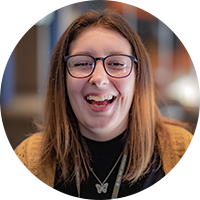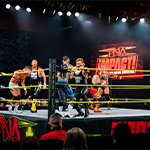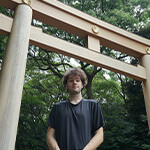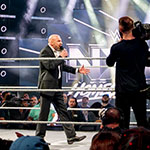Full Sail Stories
Published Oct 23, 2025
Faculty Spotlight: Sydney Cochran (Live Event Production)
Advanced Video Production instructor Sydney Cochran prepares students for industry roles by combining her professional experience with hands-on teaching.
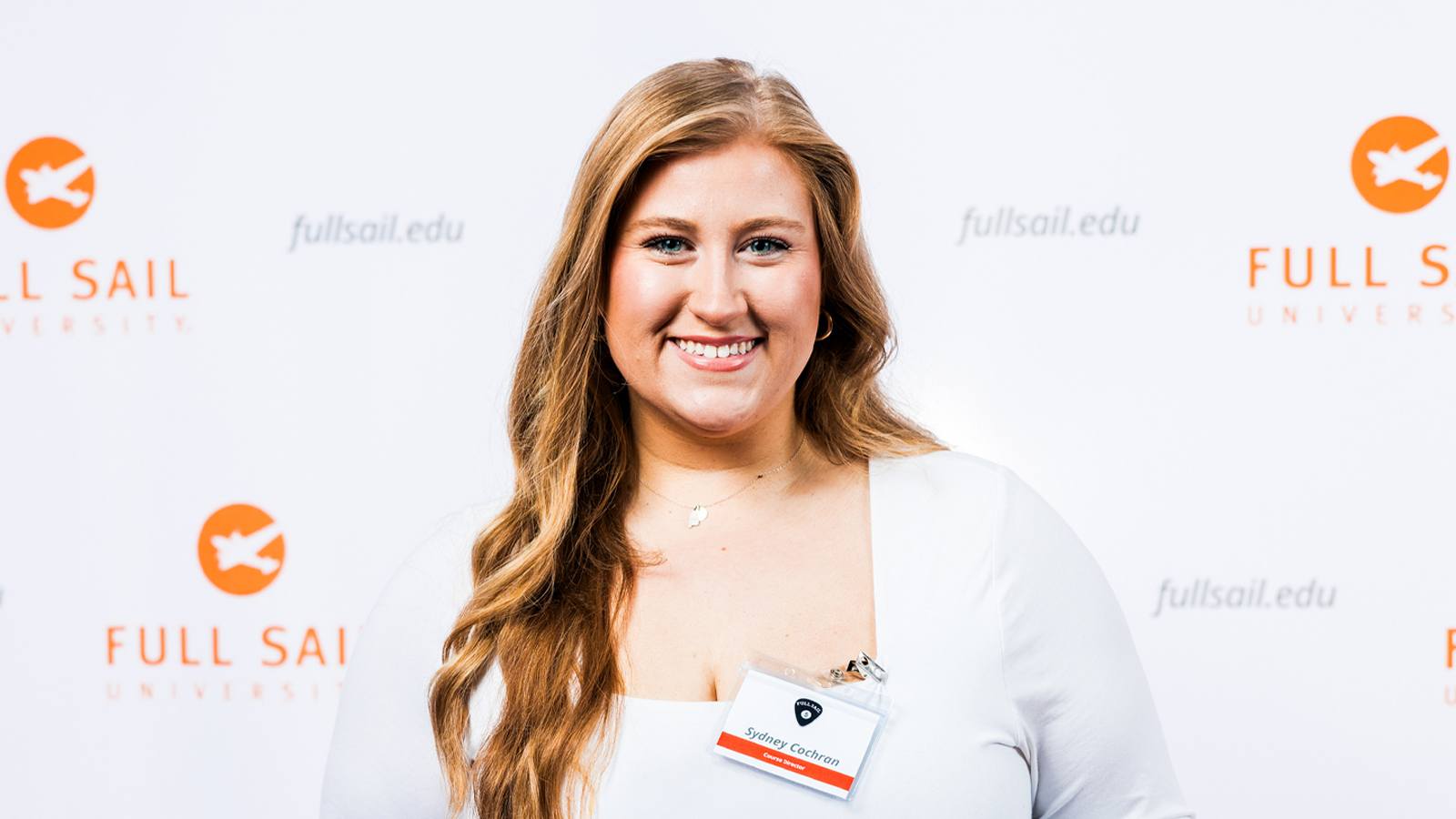
As a course director in Full Sail’s Live Event Production bachelor’s program, Sydney Cochran helps students build the technical skills they’ll need in the field. She leads Advanced Video Production and supports senior-level courses, including Project & Portfolio III-VII and Sports Broadcast Production. Drawing on her background as a production manager, video director, and stage manager, Sydney emphasizes hands-on learning and industry-ready skills, from mastering signal flow to managing live productions.
What were you doing professionally before you started teaching at Full Sail?
Before working at Full Sail, I was a production manager and video director for a church in Alabama. I handled scheduling volunteers, graphic design, planning and coordinating special events and services, and directing video for weekly services. My own Full Sail degree [in Live Event Production] gave me the foundation for those responsibilities and also helped me land freelance video directing and stage-managing gigs during my free time.
What’s one of the most important technical skills that students learn in your classes?
Signal flow. The entire program is built on hands-on technical skills and signal flow, and every discipline requires students to understand how the simplest of sources travel and reach their destination. Building confidence in that knowledge is essential.
Can you share a time when you used signal flow in your professional work?
Every gig I’ve worked has come down to basic signal flow. One example was a venue where we couldn’t run cables in a straightforward “home run” fashion to patch cameras back to the central video village. Instead, we had to use the venue’s cross patch points. I spent time mapping out the backroads of the system before I could confidently say everything would work properly.
What’s the most memorable project you’ve worked on professionally?
Two projects stand out. Most recently, some Live Event Production staff and students partnered with the Dr. Phillips Center to facilitate the live tapings of Alan Cumming’s cabaret Uncut at Judson’s Live. I served as the video and technical director for the three sold-out shows.
Another highlight was Winter Park’s 100th Anniversary celebration, where our program provided backline and AV support for the ceremony and a performance by Boys Like Girls. I started as stage manager, but the production manager fell ill right before load-in and asked me to step in. Not only did I get to see one of my childhood favorites perform, I was also production manager and stage manager for the event – my young emo heart was full!
How do you apply your professional experience in the classroom?
Sharing personal stories, both successes and challenges, really resonates with students. It helps them see that their instructors were once in their shoes. To be able to share positive and negative stories in the classroom allows for the reminder that everyone starts somewhere and you can always make the next job better than your last.
Why is it important for students in your courses to gain hands-on experience?
Students all learn differently. Some need repetition or video examples, but the most universal method is hands-on practice. When students can plug in the cable, build the camera, push the fader, or hang the fixture themselves, it sticks. That tangible experience reflects what they’ll encounter in the industry.
Do you use any unique strategies when teaching?
I like using short quotes and analogies. In my Switcher Overview Lab, another instructor and I coined the “Build a Pizza” analogy – layering video sources is like adding toppings to a pizza. It helps students personalize their workflow. In another case, a student asked where to store a camera case. I just said, “Context clues!” They looked around, saw where the other cases were, and smiled as they pushed it into place.
What do you enjoy most about teaching compared to working in the field?
I still enjoy opportunities to work in the industry, but teaching is about those “I understand it now!” moments. Seeing students connect the dots – and later, running into them as alumni working in the same industry – is incredibly gratifying. The live events world is smaller than people think, and it’s special to know I had a hand in preparing them.
